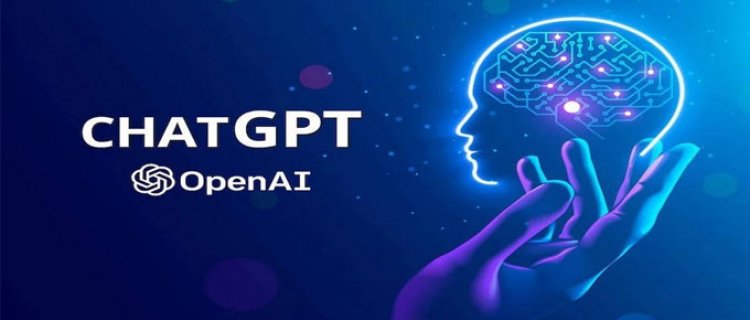The Future of GPT: An In-depth Analysis
The advent of Generative Pre-trained Transformers (GPT) has revolutionized the field of artificial intelligence (AI) and natural language processing (NLP).

Introduction
The advent of Generative Pre-trained Transformers (GPT) has revolutionized the field of artificial intelligence (AI) and natural language processing (NLP). Developed by OpenAI, GPT models have demonstrated remarkable abilities in understanding and generating human-like text, transforming industries and opening new avenues for AI applications. This analysis explores the future of GPT, examining advancements, potential applications, ethical considerations, and societal impact.
Advancements in GPT Technology
The evolution of GPT models from GPT-1 to the current GPT-4 has been marked by significant improvements in model size, training data, and capabilities. Future advancements are expected to focus on:
Model Size and Efficiency
As computational power continues to grow, future GPT models are likely to be even larger and more complex, allowing for deeper understanding and more nuanced text generation. Efforts to enhance efficiency, such as optimizing algorithms and using advanced hardware like quantum computers, will play a critical role in making these models more accessible and sustainable.
Multimodal Capabilities
Integrating multimodal data (text, images, audio, and video) into GPT models will enhance their versatility. By understanding and generating content across different media, GPT could revolutionize fields like content creation, virtual reality, and human-computer interaction.
Real-time Learning and Adaptation
Future GPT models might incorporate real-time learning, allowing them to adapt to new information quickly. This capability would enable more dynamic and context-aware interactions, making GPT even more useful in applications like customer service, healthcare, and education.
Potential Applications
The versatility of GPT opens the door to numerous applications across various sectors:
Healthcare
In healthcare, GPT can assist in diagnosing diseases by analyzing patient data and medical literature. It can also support personalized medicine by generating tailored treatment plans based on individual patient profiles and medical history.
Education
GPT has the potential to revolutionize education by providing personalized tutoring, generating educational content, and supporting teachers with lesson planning and grading. Its ability to understand and generate text can make learning more interactive and accessible.
Business and Marketing
Businesses can leverage GPT for market analysis, customer engagement, and content creation. By analyzing market trends and customer feedback, GPT can generate insights and strategies that drive business growth. In marketing, GPT can create compelling ad copy, social media posts, and personalized communication.
Creative Industries
The creative potential of GPT is immense. It can assist in writing novels, screenplays, and music lyrics, providing inspiration and overcoming writer's block. In the gaming industry, GPT can generate complex storylines and dialogues, enhancing the gaming experience.
Ethical Considerations
As GPT technology advances, several ethical issues must be addressed to ensure responsible use:
Bias and Fairness
GPT models can inadvertently perpetuate biases present in training data. Future models need to incorporate robust mechanisms to detect and mitigate bias, ensuring fair and equitable AI systems.
Privacy and Security
The use of GPT in sensitive areas like healthcare and finance raises concerns about data privacy and security. Ensuring that GPT models handle data responsibly and adhere to stringent privacy standards is crucial to maintaining public trust.
Misinformation and Manipulation
The ability of GPT to generate human-like text can be misused to spread misinformation or manipulate public opinion. Developing safeguards and regulations to prevent misuse is essential to protecting societal well-being.
Societal Impact
The widespread adoption of GPT technology will have profound implications for society:
Workforce Transformation
GPT's capabilities will transform the job market, automating routine tasks and creating new opportunities in AI development and maintenance. Reskilling and upskilling the workforce will be vital to adapting to these changes and ensuring that individuals can thrive in an AI-driven economy.
Accessibility and Inclusion
GPT has the potential to make technology more accessible and inclusive. By providing natural language interfaces, GPT can help bridge the digital divide and empower individuals with disabilities to interact with technology more effectively.
Ethical AI Leadership
As GPT technology advances, it is imperative for leaders in AI to advocate for ethical practices and policies. Collaboration between governments, industry, and academia will be essential to developing frameworks that ensure the responsible development and deployment of GPT models.
Conclusion
The future of GPT is promising, with advancements in technology and applications poised to transform various sectors. However, addressing ethical considerations and societal impacts is crucial to harnessing the full potential of GPT responsibly. By fostering collaboration and emphasizing ethical AI practices, we can ensure that GPT technology contributes to a better and more equitable future.
Future Research and Development Directions
To fully realize the potential of GPT, continued research and development are necessary:
Interpretability and Transparency
Enhancing the interpretability and transparency of GPT models will be crucial for building trust and understanding their decision-making processes. Techniques such as explainable AI (XAI) can help demystify how GPT models generate outputs, making them more accountable and reliable.
Collaborative AI Systems
Integrating GPT models with other AI systems to create collaborative, multi-agent environments can unlock new capabilities. Such systems can tackle complex tasks that require diverse skill sets, improving efficiency and outcomes in various applications.
Ethical AI Frameworks
Developing comprehensive ethical AI frameworks will guide the responsible use of GPT technology. These frameworks should address issues such as data ethics, accountability, and the societal impact of AI, ensuring that GPT models are developed and deployed with consideration for their broader implications.
Long-term Vision
The long-term vision for GPT involves creating AI systems that are seamlessly integrated into everyday life, enhancing human capabilities and improving quality of life. This vision encompasses:
Augmented Intelligence
Rather than replacing humans, GPT can augment human intelligence by providing insights, recommendations, and support. This symbiotic relationship between humans and AI can lead to more informed decision-making and innovative solutions to complex problems.
Global Collaboration
GPT technology can facilitate global collaboration by breaking down language barriers and enabling cross-cultural communication. This capability can foster greater understanding and cooperation on global challenges such as climate change, healthcare, and education.
Sustainable AI Development
Prioritizing sustainability in AI development is essential to minimizing the environmental impact of large-scale models. Research into energy-efficient algorithms, renewable energy sources, and sustainable practices will be critical to ensuring that the benefits of GPT technology are realized without compromising the planet's health.
Conclusion
The future of GPT holds immense promise, with the potential to revolutionize numerous fields and enhance human capabilities. However, realizing this potential requires addressing ethical considerations, ensuring equitable access, and fostering collaboration across sectors. By prioritizing responsible AI development and deployment, we can harness the power of GPT to create a better, more inclusive, and sustainable future.






















